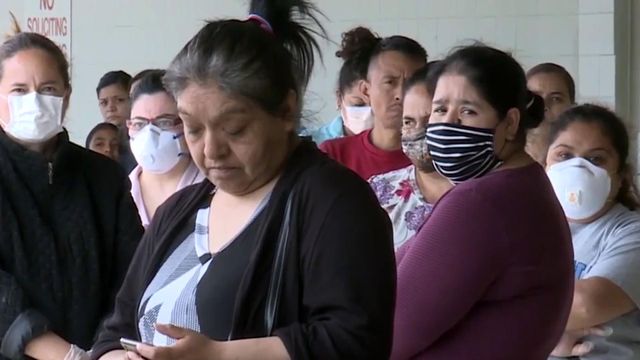Study: Latinos more likely to share misinformation
Latinos are more likely to consume and share misinformation about the coronavirus pandemic, according to a new study. Experts say that dynamic plays a major role in vaccination rates.
Posted — Updatedand shared, is in Spanish, Spanglish or colloquial Spanish, challenging conventional fact-checking and content moderation procedures to keep up," the report states.
"Some of it is fairly mundane, some of it is innocuous, and some of it will kill you," Brian Southwell, senior director for Science in the Public Sphere at research firm RTI International, said of the misinformation. "They are perhaps interested in this information because they think it’s going to keep them healthy, or there’s something about their world view that resonates with them."
Southwell said the shared misinformation could be because Latinos don’t feel like they have trusted sources.
"I think that’s part of the solution moving forward – building forms where everybody feels welcomed and has access to information in a variety of languages and a variety of cultural perspectives," he said.
El Centro Hispano, in Durham, has a Spanish hotline where anyone can call with questions or concerns about coronavirus, vaccines and other pandemic-related issues, community support manager Diana Ramirez said.
Lately, the hotline has been getting a lot of calls about vaccine booster shots, Ramirez said.
“If the booster is required, if they will feel the same as the first and second doses – so they are concerned about that and if that actually is going to help them avoid COVID,” she said.
According to the state Department of Health and Human Services, 65.2 percent of North Carolina's Hispanic population 12 years old and up has received at least one dose of vaccine. Among Latino adults in the state, the rate is 69.2 percent.
DHHS hosted a "coffee and conversation" event in Spanish on Thursday to discuss the safety and effectiveness of coronavirus vaccines.
Misinformation is something public health officials need to continue battling for the state to increase its vaccination rate, Southwell said.
"I think it’s important with study results like this not to blame the victim," he said. "Just because a particular group is encountering more misinformation, it’s doesn’t mean they are less interested in the truth."
• Credits
Copyright 2024 by Capitol Broadcasting Company. All rights reserved. This material may not be published, broadcast, rewritten or redistributed.





